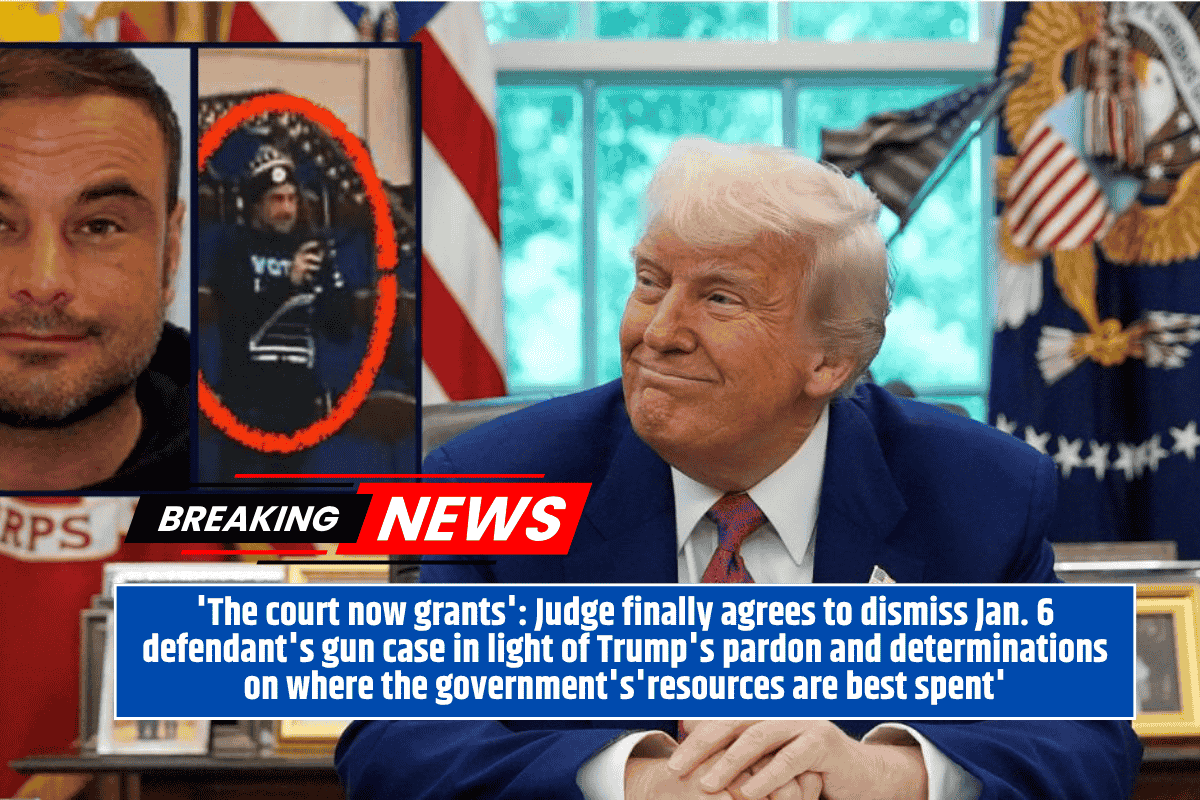A federal judge in Baltimore has ruled to dismiss the gun crime case against Elias Costianes, a defendant connected to the January 6 Capitol riot, after the application of President Donald Trump’s mass pardon for January 6 defendants. The ruling follows extensive legal back-and-forth over the case, and despite some reservations, U.S. District Judge James Kelleher Bredar was compelled to grant the motion, ultimately applying the pardon to Costianes’ firearm charge.
The Timeline and Background
The case dates back to February 2021 when Elias Costianes was charged with firearms offenses after federal agents executed warrants while investigating the January 6 riots. At the same time, he faced a separate case for participating in the Capitol breach, during which he filmed himself inside the building. By September 2023, Costianes pleaded guilty to possession of firearms by an unlawful user of controlled substances and received a two-year prison sentence.
However, the legal wrangling over his conviction took a significant turn when, on the day he reported to prison, Costianes filed motions with the 4th Circuit Court of Appeals, requesting his sentence be overturned based on Trump’s pardon granted on January 20, 2021. The legal journey that followed became a complex series of motions, appeals, and procedural questions, eventually landing before Judge Bredar.
Judge Bredar’s Decision and Government’s Position
After multiple rounds of legal procedures, including motions to vacate the sentence and remands from the 4th Circuit, the judge was faced with applying the pardon to the firearm charge. Judge Bredar initially expressed strong doubts about the case’s dismissal but ultimately acknowledged that the Department of Justice’s (DOJ) new reasoning supported the motion.
The DOJ argued that pursuing a case like Costianes’ was not a priority, as it stemmed from an investigation into offenses directly related to the Capitol riot. The government suggested that its resources would be better allocated elsewhere, considering such a case wouldn’t have been pursued independently of the broader January 6 investigations. This shift in reasoning helped the judge conclude that the government was acting in good faith, thereby granting the motion to dismiss the case.
The Judge’s Final Ruling and What Happens Next
Despite the judge’s acceptance of the motion, the ruling is not yet final. Judge Bredar has stayed the dismissal for 45 days due to the ongoing jurisdiction of the 4th Circuit Court of Appeals over the matter. This delay ensures that the appeal process remains intact, and the ruling will not immediately moot the pending appeal.
The legal journey of Elias Costianes, from his firearms charge to the application of Trump’s mass pardon, showcases the complex interplay between legal procedures, political decisions, and judicial discretion. While the judge has ruled to grant the dismissal, the case is far from over, with the 4th Circuit still holding jurisdiction over the matter. As a result, the legal community will continue to watch this case closely as it makes its way through the courts.






